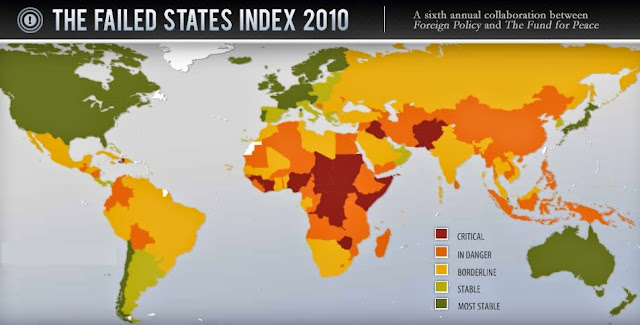Almost everyone in the world, at one time or another, has wanted to travel. Yet even within affluent societies, most people live and die within a short distance from where they are born. In the US, most people still die within 50 miles of their birthplace. This should be changing as the US population seems to be moving around the country in record numbers in search of jobs (at a level unprecidented since the 1930s following the
Great Depression and
Dust Bowl)... people have only replaced the old
jalopy with
U-Haul trucks, but the principle is the same.
I've mentioned it before, but most Americans don't own a passport, though I suspect lots more do than in the past now that travel even to Canada, Mexico, or the Caribbean requires a passport (heck, I even need one to visit US territories on US carriers, such as
Guam and the
Northern Mariana Islands).
I don't know why, but even though the Caribbean, Canada, and Mexico are so close to the US, I haven't traveled extensively in any of those regions. I've traveled most extensively in the Pacific Ocean and Asia, though
my travels have taken me to six continents and the subcontinents of India and the Arabian Peninsula.
I'm in the process of planning another series of round-the-world (
RTW) trips starting in October 2010 and ending in March 2012, though the exact details depend on whether a planned scientific expedition gets funded. My goal, if I can't do the scientific expedition as planned (February to December 2011 by sailboat through SE Asia and the eastern Indian Ocean) then I hope to visit some
dangerous and unstable places (the most dangerous of which will be
Arab Iraq) as well as a liesure tour RTW to visit my friends and colleagues.
As a coral reef biologist, while I haven't made a lot of money, I've been lucky enough to travel to some amazing places. I think it all boils down to perspective and priorities. I choose to prioritize traveling and working in a specific way in specific environments (coral reefs and tropical coastal locations) over making lots of money. I come from a family of entrepreneurs so I could have made much more money but I chose to try and live the life of my dreams. But yeah, money would help!
Anyway, I mention this because I am not wealthy by any means (in fact, most of my working life, I've often slumped below the poverty line though I don't live outside of my means and I don't live like a poor person). Yet, I've traveled RTW and continue to do so for the rest of my life. Life is a journey, so take it!
My brother hasn't traveled much outside of the mainland US, with brief forays into Canada, Hawaii, Jamaica, the Bahamas, and a Mexican border town the only exceptions. He's traveled around the US a bit though, which is
larger than most countries.
Recently, my brother asked me to take a trip with him to Europe since he's never been. He doesn't have a lot of time (the average American gets 12 vacation days per year, which would be anathema to many Europeans), but he wants to see a few highlights. Specifically, in 10-12 days (including travel from Chicago, his nearest large international airport) he wants to see London, Amsterdam, and Italy. He fully realizes that a month or more would be best (heck, one could spend a lifetime in Italy alone) but he's taking to heart a lesson that I've long realized: if you have only a day or two for a new place, it's better than no days at all. And so, he's thinking 2 days London, 2 days Amsterdam, and 6-8 days in Italy (about 4 cities, one of which on Sicily). His list of Italian cities so far is Venice, Rome, Naples, and Palermo, but if he's concerned with top tourist cities, I've compiled the following list from which he needs to choose (with images from Wikipedia):

Obviously, we can't see all the cities (though I'll do that on my own later) and a couple days in each city isn't really enough, but he says that it will be at least 5 years (in his mind) before he can go back to Europe, so he'd like to do the trip now. And hey, I plan on traveling to Arab Iraq next year, so I'm putting my affairs in order just in case that trip will be my last!
So I've agreed. We're planning on going to Europe together in early October, then I'd stay on and visit some friends in other cities that he doesn't care to travel through (Vienna, Zurich, Geneva, Paris, Hamburg, and St. Petersburg) before I continue onward to start the alluded-to scientific expedition (once details are finalized I'll post them).
Based on my past travel experience, I am confident I can get a 10-12 day trip to Europe covered in under $1500 including airfare and once I start piecing all the details together, I'll post what I've purchased and planned so that others can enjoy such travels for small amounts.
I've realized over the years that pretty much anywhere in the world can be reached for under $2000 in airfare (though sometimes many small flights must be assembled when more direct flights are cost prohibitive) and a lot less if stringing together distant locations via a RTW ticket. With this knowledge in mind, there is nothing stopping someone in the mainland US from visiting Hawaii every year for a week or picking a new Caribbean cruise annually.
Since most trips can be completed in total under $2000 (for shorter trips) I have long wondered why so many people I meet don't travel more. Sure, there is disparity of income worldwide and visa issues for many, but most countries in the world are small so there is plenty of opportunity for regional travel. Do you live in Kuala Lumpur? Well, great, then you can visit over a dozen countries with Air Asia and have complete trips under $1000 easily. It is all a matter of prioritization.
So why, if it is cheap and doable, don't more people travel? I think fear of the unknown is the key factor. So many people when the travel to another country seek out the food of their homeland. I've seen many Indian and Chinese tourists travel with their own food. Americans are almost notorious for seeking out McDonalds and Starbucks overseas.
Some might argue that in order to truly get off the beaten track, you must travel to locations without a McDonalds. On the map below, that would be all the grey areas, which now are mainly limited to Central Asian and African countries (with a few other examples spread around the globe).
It is probably not surprising that those grey countries also generally have little western tourism, lending value to my hypothesis that people are afraid to travel and when they do, they'll seek out familiar locations first.
On a similar note, I once read an article somewhere saying that you could track perpetual war zones and economic development by the lack of Coca Cola production plants. Perpetual war zones tend to occur in neglected places (at least neglected from a media or international development perspective) and also tend to be countries with lower values on the Human Development Index (HDI; map below modified from a Wikipedia image).
I think for a lot of Americans, there is a "NIMBY" perspective (not in my back yard), meaning that countries with little cultural similarity and countries that are particularly poor (without mineral values) are neglected. Private companies tend to take over the role of governments (regarding international development) when large mineral or natural resources concessions seem available (examples include DR Congo, Nigeria, Angola, Sudan, Iraq).
When you combine a lack of McDonalds, Starbucks, or Coca Cola with a low HDI, long-term international neglect, and perpetual conflicts, you tend to get
failed states and unstable regimes, neither of which are conducive to tourism. And oddly enough, these are exactly the kinds of places that I want to travel to and "figure out," though as a friend once told me, his Ukranian and Moldovan friends can't figure out their own countries, so how am I supposed to?
And that's a question that concerns me and one that drives me to continue to learn about other cultures from an outsider's perspective. I've been doing it long enough and living overseas for most of the last 14 years, to the point where I feel almost like an outsider in my country of birth. But hey, when there's over 300 countries / territories in the world, exile doesn't feel so lonely.
Thanks for reading,
Robert











